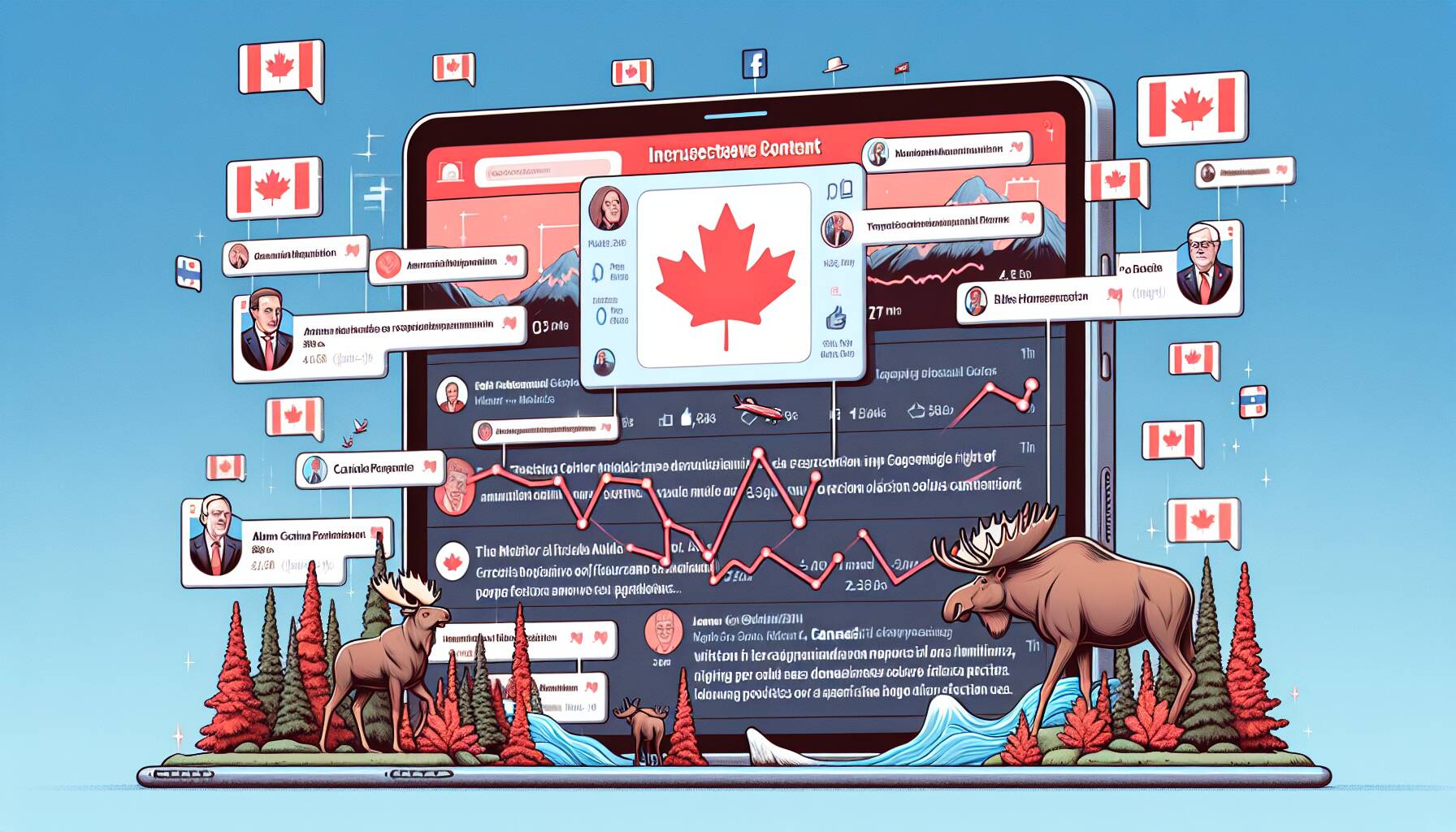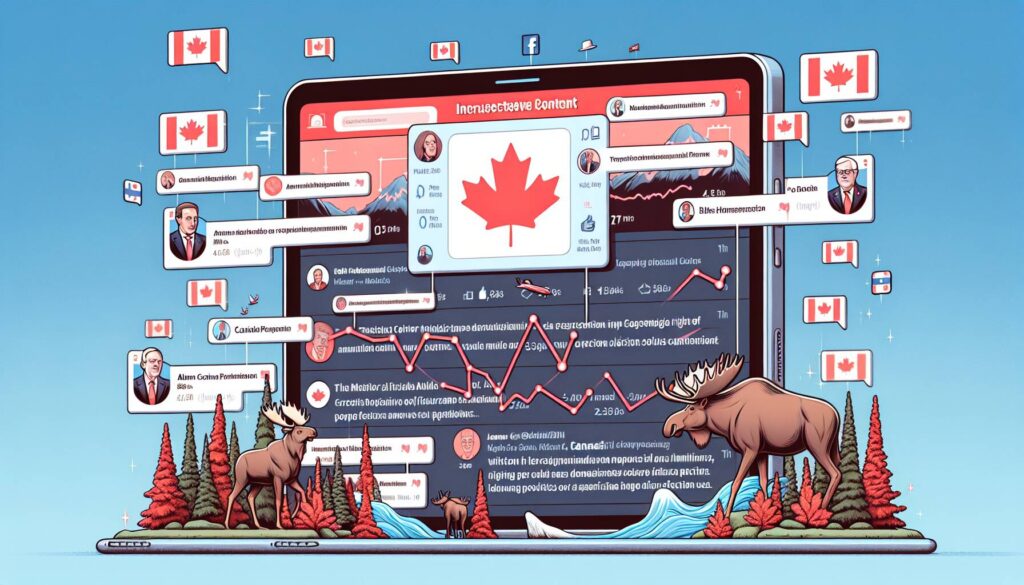The landscape of Canadian politics is facing a new and concerning challenge as the nation gears up for its upcoming elections. A recent surge in fake political content on social media platforms has caught the attention of both officials and citizens alike. With misinformation spreading like wildfire, it’s more crucial than ever for voters to stay informed and discerning as they navigate the complex world of online news.
As Canada prepares to head to the polls, the dramatic rise of fabricated stories and misleading posts raises questions about the integrity of the election process. Social media, while a powerful tool for communication and engagement, has also become a breeding ground for deceptive narratives that can sway public opinion and impact voter behavior.
“We must stay vigilant and educated in this evolving digital age to ensure our voices are heard accurately.”
In this climate of uncertainty, awareness is key. Canadians are urged to seek out reliable sources and fact-check information before sharing. As the election approaches, understanding the influence of social media on political discourse is essential for maintaining a healthy democracy.

Dramatic Rise in Fake Political Content on Social Media in Canada
The upcoming elections in Canada have been significantly impacted by a surge in misleading political information circulating on social media platforms. It is essential for readers to be aware of this trend as it can influence their understanding and participation in the democratic process.
- Increase in Fabricated Content: There has been a dramatic rise in fake political stories, which can mislead voters and skew public opinion.
- Impact on Voter Decision-Making: Misinformation may affect how individuals perceive candidates and party policies, potentially leading to uninformed voting choices.
- Challenges for Election Integrity: The prevalence of false information raises concerns about the integrity of the electoral process and the authenticity of democratic engagement.
- Vulnerability of Social Media Users: Users may not have the skills or tools necessary to differentiate between credible information and fake news.
- Importance of Media Literacy: Strengthening media literacy among voters is essential to empower them to critically evaluate political content shared online.
As readers navigate the pre-election landscape, it is crucial to remain vigilant about the sources of information and to seek out trustworthy news outlets.
Dramatic Rise in Fake Political Content in Canada: A Growing Concern
The political landscape in Canada is witnessing an alarming increase in the dissemination of fake content online as the nation gears up for its upcoming elections. This spike in misinformation is not merely a fleeting trend; it poses substantial challenges for voters, political parties, and the integrity of the democratic process itself.
Comparative Analysis: In recent months, we have seen similar patterns emerge in various countries as they approach significant electoral events. For instance, platforms like Facebook and Twitter have grappled with their own struggles against the spread of disinformation, particularly surrounding events such as the U.S. presidential elections and referendums in the UK. While many platforms are enhancing their fact-checking capabilities and investing in advanced technology to curb these issues, Canada faces unique challenges due to its diverse political climate and multilingual population.
This situation presents both competitive advantages and disadvantages for news outlets and political entities. On one hand, the rise of misinformation highlights the urgency for trustworthy journalism; voters are more likely to turn to reliable sources that provide in-depth analysis and verification of facts. This can enhance the credibility of established media organizations that proactively address these challenges.
On the flip side, the omnipresence of sensationalist fake news can erode public trust in all media outlets. The flood of misleading information can overwhelm unprepared voters, which may skew the election results in favor of candidates and parties that capitalize on chaotic narratives. For political parties, this chaotic battleground means they must now allocate significant resources toward counteracting smear campaigns and protecting their reputations from unfounded stories.
This environment could especially benefit organizations that focus on digital literacy, providing tools and education for voters to discern fact from fiction. Conversely, it creates substantial problems for the less tech-savvy electorate, particularly older demographics who may be more susceptible to misinformation.
As Canada moves closer to its election date, the growing prevalence of fake political content on social media presents a pressing issue that requires urgent attention from all stakeholders involved in the democratic process, emphasizing the need for vigilance, accountability, and a commitment to truthful information dissemination.

















